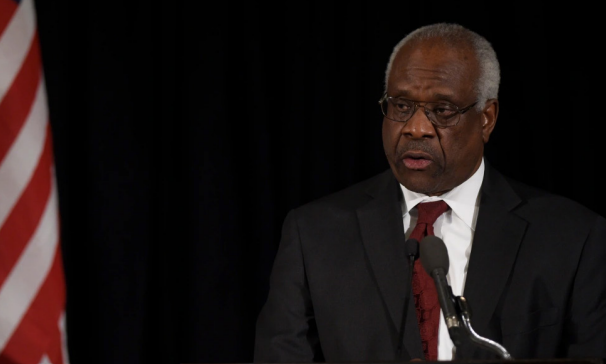Adapted from the writings of Dayan Yitzhak Grossman April 18, 2024 AP News reports: A…

Je Récuse! When Must a Dayan Disqualify Himself?
Adapted from the writings of Dayan Yitzhak Grossman
June 15, 2023
Our previous article concluded:
A litigant’s provision of paid services to a judge does not disqualify the judge, but he should nevertheless recuse himself if it has engendered kiruv hada’as.
In this article, we elaborate upon this point.
Fix the Court, which styles itself as a nonpartisan organization “that advocates for non-ideological ‘fixes’ that would make the federal courts, and primarily the U.S. Supreme Court, more open and more accountable to the American people,”[1] writes:
Justices Breyer, Sotomayor and Gorsuch have book deals with Penguin Random House, with all three earning big bucks from these contracts. In 2019, PRH was a respondent in a copyright infringement suit at [the Supreme Court]…and only Breyer recused, though not because of his writing but because at the time, his wife’s family’s publishing company, Pearson, owned a large stake in PRH. Though the “financial interest” language in the federal recusal statute is typically interpreted to mean stocks, all three—and now Justice Barrett, who has her own PRH book deal—should recuse…Fix the Court identified these conflicts in its July 2020 recusal report, but no further action was taken.[2]
In general, halacha does not disqualify a judge from adjudicating a case involving a litigant with whom he has a professional or business relationship. R’ Yosef Colon (the Maharik) was asked whether a teacher may adjudicate a case involving his student or his student’s father despite having been paid for his services, and he rules that he may, because the payment he received was not a gift but compensation for services rendered, and there is no indication that the payment was made in anticipation of the litigation.[3] R’ Yosef (Mahari) ibn Lev adds that although the Maharik, when recording the question posed to him, describes the teacher as having been paid “precisely for the hours” that he worked, in his ruling he omits any mention of this, implying that the ruling applies whether or not this is the case. The Mahari ibn Lev accordingly rules that it is not even considered ideal conduct for a teacher to avoid adjudicating a case involving his student, and he extends this rule to permit employees to adjudicate cases involving their employers:
We do not find an allusion anywhere in the Gemara that workers and employees are disqualified, either from testifying or from judging…[4]
R’ Shmuel di Medina (the Maharshdam), however, asserts that “without a doubt” a teacher should ideally (as a matter of midas chasidus) recuse himself from a case involving his employer.[5]
Elsewhere, the Maharik cites the Mordechai[6] as ruling that a guest is not strictly disqualified from adjudicating a case involving his host. Although the Gemara records an incident in which the Amora Rav recused himself from such a case, declaring that “I am disqualified to judge for you,”[7] this, he says, was only an exercise of personal stringency.[8]
[2]Recent Times in Which a Justice Failed to Recuse Despite a Conflict of Interests. Fix the Court. May 11, 2023. https://fixthecourt.com/2023/05/recent-times-justice-failed-recuse-despite-clear-conflict-interest/.
The conservative Daily Wire, in an article titled “Liberal SCOTUS Justice Took $3M From Book Publisher, Didn’t Recuse From Its Cases,” which cites Fix the Court’s work, details Sotomayor’s failure to recuse herself from PRH litigation but neglects to mention Gorsuch’s failure to do so.
[3]Shu”t Maharik shoresh 16 anaf 2, cited by Bais Yosef C.M. siman 7 and codified by Rama in ibid. se’if 7 and Sma ibid. s.k. 21.
[4]Shu”t Mahari ibn Lev cheilek 3 siman 97.
[5]Shu”t Maharashdam C.M. siman 2 at the beginning of s.v. Teshuvah. (The teshuvos of Mahari ibn Lev and Maharashdam are addressing the same question.)
The Knessess Hagedolah (ibid. Hagahos Bais Yosef os 22) cites Mahari ibn Lev and Maharashdam as disagreeing, and does not decide between them, but the Shach (ibid. s.k. 12) cites only the former, leading the Halacha Psukah (Mechon Harry Fischel) ibid. p. 60a n. 278א to conclude that the Shach sides with Mahari ibn Lev.
[6]It is unclear if this explanation is found in our editions of the Mordechai, but it is found in any event in Tosafos ibid. s.v. Pasilna lach.
[8]Maharik ibid. shoresh 21, cited in Bais Yosef ibid. and Shach ibid.





